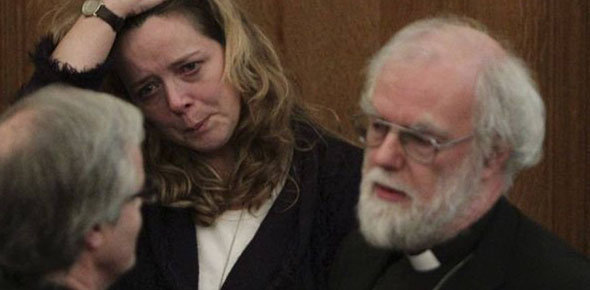House of Laity failed to deliver 2/3 majority in favour of women Bishops.

The General Synod of the Church of England has, against almost all expectations, rejected the ordination of women bishops. This seems to represent an early defeat for the incoming Archbishop of Canterbury Justin Welby, who earlier had called on his fellow Anglicans to ‘finish the job’ and accept reform.
Secularists and liberals will be baffled – just how fuddy-duddy are those members of the Synod who voted it down? Somehow there still are enough conservative evangelicals and Anglo-Caths in the Synod who are uncomfortable with the measure as it was presented. The chief controversy, it seems, was over provisions for parishes who did not want a woman bishop in charge.
The rejection is also, counter-intuitively, a defeat for some conservative Roman Catholics, who feel that the only way forward for Christian unity is for the Anglican Church to tear off on its liberal path, leaving a Catholic tradition behind to prosper.
In the 1990s, after the Church of England accepted the ordination of women priests, William Oddie published a bold little book called The Roman Option. In its pages, he predicted the Anglican Communion would inevitably experience more ‘convulsions’ as it grappled with modernity. This in turn would lead to a fundamental ‘realignment’ of Christianity. Two great traditions would emerge, he said, the Catholic and the Reformed – one orthodox, the other liberal.
‘As the wounds of the past healed,’ he predicted, ‘these blocks would gradually grow together until, possibly in only a century or two, error and apostasy would fall away like dead skin cells, making way for the union of all Christian peoples.’
Heavy stuff. In recent years, though, Oddie’s thesis had started to look somewhat prophetic. Pope Benedict XVI recently tried to establish a new channel – a special ‘apostolic constitution’ – through which disgruntled Anglicans could approach Rome.
And as Damian Thompson blogged earlier, what with the appointment of Welby and the slow but steady movement of conservative Anglo-Catholics across the Tiber, Anglo-Catholicism looked to be on its last legs. It’s not quite dead yet, though, as tonight’s vote shows. There are more convulsions to come.







